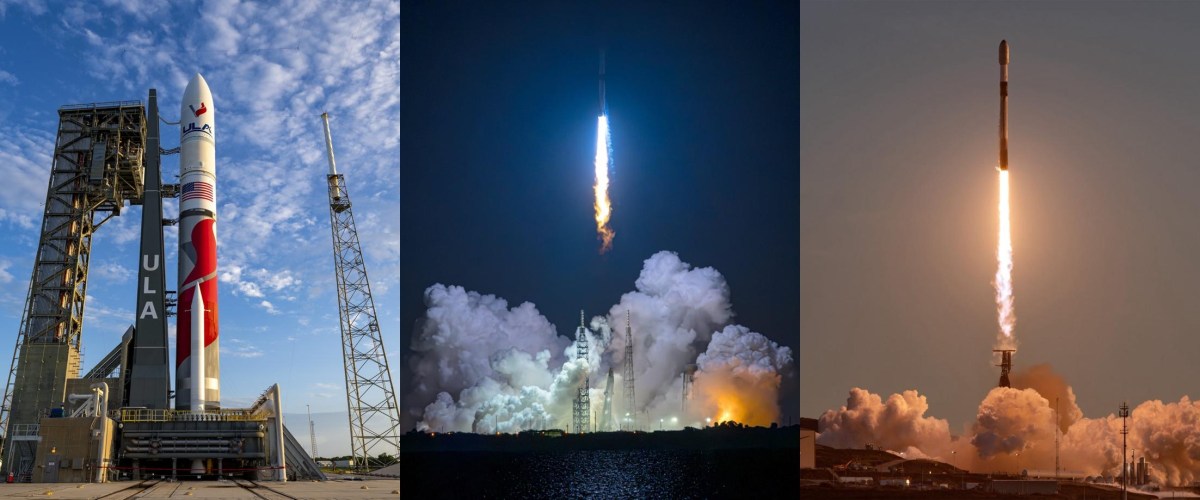WASHINGTON — The U.S. Department of Defense has awarded a combined $13.7 billion in launch service contracts to SpaceX, United Launch Alliance (ULA), and Blue Origin, marking the first time three companies will share responsibility for launching high-priority military and intelligence payloads.The contracts, announced April 4 by the U.S. Space Force’s Space Systems Command, are part of the National Security Space Launch (NSSL) Phase 3 Lane 2 procurement, a cornerstone initiative designed to bolster the Pentagon’s access to space for its most sensitive and risk-averse missions.SpaceX emerged as the leading contractor, securing $5.9 billion in anticipated awards, followed by ULA at nearly $5.4 billion and Blue Origin at nearly $2.4 billion. The three companies are expected to collectively perform 54 launches under the agreement between fiscal years 2025 and 2029.“This is a strategic investment in assured access to space,” said Gen. Chance Saltzman, Chief of Space Operations for the U.S. Space Force. “A robust and resilient space launch architecture is the foundation of both our economic prosperity and our national security.”SpaceX and ULA Dominate Launch AssignmentsOf the 54 projected missions, SpaceX is expected to carry out 28, or roughly 60%, while ULA will perform 19 missions, or around 35%. Blue Origin, which has flown its New Glenn rocket just once and has yet to be certified, is slated for seven launches starting in the program’s second year, contingent on certification of its vehicle.The Lane 2 portion of the Phase 3 program focuses on complex launches to high-energy orbits with enhanced mission assurance requirements—such as secure communications and missile warning systems—making it the most demanding category of national security launch assignments.Missions are typically assigned two years ahead of their scheduled launches. Flights under these new contracts are expected to take place from fiscal year 2027 through 2032.Competitive Landscape Shifts with Blue Origin’s EntryThe inclusion of Blue Origin marks a notable shift in the Pentagon’s strategy, increasing competition among U.S. launch providers. SpaceX SpaceX has dominated the national security launch market since Phase 2 contracts were awarded in 2020. This marks the first time the government has named three primary launch providers.Blue Origin was selected as the “third best value provider” despite New Glenn not yet being certified for national security missions. Space Force officials have signaled confidence in the rocket’s development, anticipating certification by the time Blue Origin’s assignments commence.ULA, a joint venture between Boeing and Lockheed Martin, recently cleared a major milestone with the certification of its long-delayed Vulcan rocket on March 26. The company plans to begin launching its previously awarded NSSL Phase 2 missions later this year.Dual-lane strategy to ensure diversification The Phase 3 acquisition strategy is split into two “lanes.” Lane 1 is geared toward less risk-averse, commercial-like missions and includes about 30 launches. Lane 2 targets high-stakes missions that demand elevated performance and security standards.“These contracts ensure continued access to this vital domain,” said Maj. Gen. Stephen Purdy, acting Assistant Secretary of the Air Force for Space Acquisition and Integration.Under the contract, all three companies will be required to meet stringent mission assurance standards, including joint integration efforts with government teams to safeguard mission success.The launch providers will be assigned missions on an annual basis, with the first round of fiscal 2025 mission awards to be announced later this year. Assignments will continue annually each October through the end of the contract period.The Phase 3 contracts build on the Pentagon’s efforts to eliminate dependence on Russian-made RD-180 engines and to foster a competitive U.S. launch market capable of meeting national security agencies’ evolving space requirements.
SpaceX, ULA, Blue Origin win $13.7 billion in U.S. military launch contracts through 2029

By Tyler Mitchell
Tyler is a renowned journalist with years of experience covering a wide range of topics including politics, entertainment, and technology. His insightful analysis and compelling storytelling have made him a trusted source for breaking news and expert commentary.